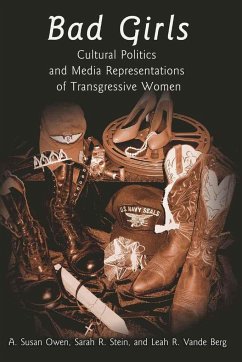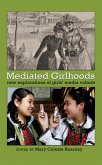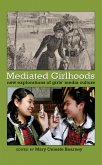Bad Girls examines representational practices of film and television stories beginning with post-Vietnam cinema and ending with postfeminisms and contemporary public disputes over women in the military. The book explores a diverse range of popular media texts, from the Alien saga to Ally McBeal and Sex and the City, from The Net and VR5 to Sportsnight and G.I. Jane. The research is framed as a study of intergenerational tensions in portrayals of women and public institutions - in careers, governmental service, and interactions with technology. Using iconic texts and their contexts as a primary focus, this book offers a rhetorical and cultural history of the tensions between remembering and forgetting in representations of the American feminist movement between 1979 and 2005. Looking forward, the book sets an agenda for discussion of gender issues over the next twenty-five years and articulates with authority the manner in which «transgression» itself has become a site of struggle.
«'Bad Girls' rides the cutting edge of new feminist scholarship. This engaging and important volume brings the study of how women are represented in media into the twenty-first century. Bad Girls is an indispensable book for rhetorical scholars and others interested in women's issues.» (Barry Brummett, University of Texas at Austin)
«This courageous book - to write, to publish, to teach - gets down to cases about how embodied subjectivity works and works out in television and film of the postmodern era. Proving the discursive politics that disciplines genders and recuperates transgressors (and the bodies they inhabit), Owen, Stein, and Vande Berg offer accessible readings of texts and the contexts in which they arise. Their unblinking response to the paralyzing force of postfeminism, at once reasoned and impassioned, flings open doors to reconciliation for feminists of all ages and stripes.» (Caren Deming, University of Arizona)
«This courageous book - to write, to publish, to teach - gets down to cases about how embodied subjectivity works and works out in television and film of the postmodern era. Proving the discursive politics that disciplines genders and recuperates transgressors (and the bodies they inhabit), Owen, Stein, and Vande Berg offer accessible readings of texts and the contexts in which they arise. Their unblinking response to the paralyzing force of postfeminism, at once reasoned and impassioned, flings open doors to reconciliation for feminists of all ages and stripes.» (Caren Deming, University of Arizona)








